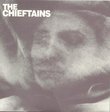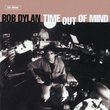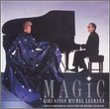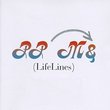| All Artists: Giacomo Puccini, Giuseppe Verdi, Carlo Rizzi Title: Salvatore Licitra - The Debut Members Wishing: 0 Total Copies: 2 Label: Sony Release Date: 7/2/2002 Genre: Classical Style: Opera & Classical Vocal Number of Discs: 1 SwapaCD Credits: 1 UPC: 696998992320 |
Search - Giacomo Puccini, Giuseppe Verdi, Carlo Rizzi :: Salvatore Licitra - The Debut
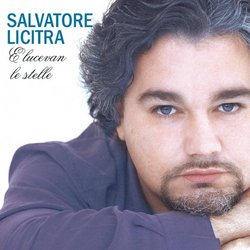 | Giacomo Puccini, Giuseppe Verdi, Carlo Rizzi Salvatore Licitra - The Debut Genre: Classical
Tenor Salvatore Licitra recently made headlines when he stepped in at the last moment for the, sad to say, probably finished Luciano Pavarotti at the Metropolitan Opera's final Toscas of the season. In fact, there's little... more » ![header=[] body=[This CD is available to be requested as disc only.]](/images/attributes/disc.png?v=430e6b0a) ![header=[] body=[This CD is available to be requested with the disc and back insert.]](/images/attributes/disc_back.png?v=430e6b0a) ![header=[] body=[This CD is available to be requested with the disc and front insert.]](/images/attributes/disc_front.png?v=430e6b0a) ![header=[] body=[This CD is available to be requested with the disc, front and back inserts.]](/images/attributes/disc_front_back.png?v=430e6b0a) |
Larger Image |
CD DetailsSynopsis
Amazon.com Tenor Salvatore Licitra recently made headlines when he stepped in at the last moment for the, sad to say, probably finished Luciano Pavarotti at the Metropolitan Opera's final Toscas of the season. In fact, there's little Licitra could have done wrong under the circumstances, but he was a great success, and judging from his recent Trovatore and this recital CD, he will be most welcome. The good-sized, somewhat dark-hued voice is appealing--and truly Italian--with an innate caressing quality and sense of line, even from top to bottom (he takes the very low option in the Ballo Barcarolle, which most tenors take up an octave), and nice and free on top. He has no trouble sustaining the high tessitura (or big sound and broad phrases) of Alvaro's aria from Forza; he sounds sincerely regretful as the caddish Pinkerton, and might even be the Dick Johnson (in Fanciulla) we've been looking for. This is an impressive debut recital, recommended for those who have been waiting for Italian opera to fall back into the hands of an Italian tenor. --Robert Levine Similarly Requested CDs
|
CD ReviewsLicitra is no Pavarotti 07/16/2002 (3 out of 5 stars) "Without a doubt Licitra has a beautiful, velvety instrument that is obviously comfortable and well suited for Puccini and Verdi roles. He has the baritone quality that so many people want in their tenors today and his interpretations are well-executed and extremely convincing. However, the question is not, is he a good singer? The question is, is he "the tenor of tomorrow?" The answer is no. What's missing? The brilliance in his voice is missing. If you were to listen to the arias from Licitra's CD and compare them to Pavarotti or Corelli or Domingo you would find that the intensity falls short. The high notes are stuck in his throat and therefore don't have the open throated intensity of Pavarotti or Corelli. Also, the vibrato seems out of control and inconsistent. If you are considering buying this cd to see what the hype is all about, go ahead. It isn't bad by any means and it is always nice to experience new interpretations of great arias. If you are looking for great recordings of these arias seek out Domingo, Pavarotti, Corelli, Gedda, Del Monaco, Bjoerling, and if you can find him Carlo Cossutta. If you are looking for tenors peforming today find Frank Lopardo, Kim Begley, Gregory Kunde, or even Roberto Alagna.Licitra is young, especially as far as spinto tenors are concerned, but I do not anticipate that his voice or career will develop into what they have been hyped up to be." Its okay Spinto | ct | 01/02/2004 (3 out of 5 stars) "I was really excited to listen to this new tenor, and I have sincerely mixed feelings about his abilities. I shall say to start that he seems to be flawed in vocal production just a little. He has a bit of a warble come in on the bottom of his voice when he tries to get that extra dynamic level. He is uncomfortable in his Passagio and his notes between that delicate switch can be far to covered and unhealthy sounding. The very top is very very good, and very very big. It is a sincere improvment over the top notes of Watson or Bocelli or any of the popera fodder. I agree with the other reviewers that he is at his very best in the Verdi. The Celeste Aida is a fine track with some real trickery in his final B flat. The rest, expecially the Ballo and the Forza, just made me miss the Jose Carreras interpretation. I listened to my 1976 Carreras Ballo after hearing Licitra and there is no comparison. Licitra seems uneven in his registers when compared. The Di Quella Pira is exiting as it always in. I was exprecially impressed with the aria from Macbeth which was done very well. The Puccini section was a mixed bag. I did not enjoy the transposed and wobbly Nessun Dorma nor did I understand the reason for the transposition, (One usually reserved for aging legends like Domingo or Carreras and vocal newbie crossover stars like Russel Watson.) Licitra could have certainly done it with the B natural. The recondita Armonia and the Donna non vidi mai both were forced and wobbbly. Chella Mi Creda was on the other hhand fabulous and licitra seems well suited to the role of Nick Johnson. Overall Licitra cannot compare to any of the three tenors in their primes. The recordings of Carreras and Domingo on the mid-period Verdi and Pavarotti's Pucinni are all superior. Nevertheless buy this CD because Salvatore is new and his interpretations are authentic. He is new and it is exciting to hear a new voice. The voice is enjoyable despite some flaws and it is nice to see new talent. He certainly belongs on stage singing these roles which is more than I can say for some of the other tenors floating around recording this stuff." A welcome voice! Joy Fleisig | 12/11/2002 (5 out of 5 stars) "Folks, those of you who don't like Licitra's singing, consider what's going on in the recording world with Watsons, Bocellis, Amantes, et al "bringing opera to the masses". Licitra's powerful, highly emotional delivery is really like a breath of fresh air. He possesses a solid technique, good insight of the characters, and a big, robust voice. Those of you looking for a lyric tenor would probably be disappointed, but those who enjoy dramatic tenor voice would definitely enjoy it. In fact, I am certain that those who give this album less than 4 stars are the same people who were outraged at Jose Cura's debut CD of Puccini arias a few years ago. They've even called him a baritone, obviously having no idea of how a high baritone should sound.
Stepping in for a great Luciano Pavarotti at the time when the audience wanted no substitute was a brave and gutsy thing to do. What helped, in my opinion, was how much the voice of Licitra differs from the voice of Pavarotti. To this day, Pavarotti's sound is bright and silvery, gorgeous high register, suited perfectly for high-flying lyric parts, such as Bellini, Donizetti, or early Verdi operas. In stark difference to the "King of High C's", Licitra's voice with its dark timbre and masculine sound is more "heroic" so to speak, perfect for the roles of Manrico or Cavaradossi. (Btw, unlike in Muti's La Scala recording of "Il Trovatore", you WILL find a high C in "Di quella pira" on this CD). He brings a great emotional depth to "Addio fiorito asil" and "O Inferno!", thereby making Pinkerton and Gabriel real and believable figures. If hard-pressed to draw comparisons, I would compare this newcomer to the great Caruso. There's a great deal of similarities in their dark, baritonal, but unmistakably Italian sounds, bursting with flavour and thirst for life." |

 Track Listings (13) - Disc #1
Track Listings (13) - Disc #1



